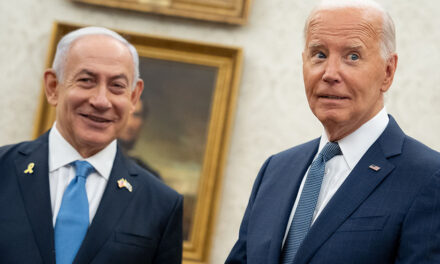We support our Publishers and Content Creators. You can view this story on their website by CLICKING HERE.
- South Korean National Assembly officially impeached President Yoon, with 204 out of 300 lawmakers voting in favor, plunging the country into a constitutional crisis.
- Yoon’s brief declaration of emergency martial law, followed by accusations of “anti-state activities” against the opposition, sparked widespread outrage and led to impeachment.
- Prime Minister Han Duck-soo is the interim leader, but the final decision rests with the Constitutional Court, which has 180 days to rule on the impeachment.
- The crisis could reshape South Korea’s political landscape, possibly leading to another election, while also creating economic instability and uncertainty.
- The impeachment highlights the limits of presidential power and serves as a crucial moment for South Korean democracy, potentially leading to lasting changes in governance and policy.
South Korean President Yoon Suk Yeol was officially impeached by the National Assembly, sending shockwaves through the country and plunging it into a constitutional crisis that experts warn could have long-lasting implications for the nation.
The impeachment vote, which passed with a resounding 204 out of 300 lawmakers in favor, comes just one week after Yoon narrowly survived an earlier impeachment attempt, marking a week of intense political turmoil that has left the nation teetering on the brink.
The catalyst for this political maelstrom was Yoon’s declaration of a brief emergency martial law on Dec. 3, which lasted only a few hours but sent the country into a tailspin. In a dramatic address to the nation, Yoon accused the opposition party of engaging in “anti-state activities,” a move that was swiftly met with widespread outrage and condemnation. The declaration, which was unprecedented in South Korean history, was immediately reversed, but not before it had caused significant political upheaval. (Related: South Korean president lifts martial law just hours after declaring it.)
What should have been a straightforward power struggle has now morphed into a complex and multifaceted crisis. With Yoon suspended from office, the ball is now in the hands of Prime Minister Han Duck-soo, who has been designated interim leader. However, this is a temporary stopgap at best, as the ultimate decision will be made by the Constitutional Court, which has 180 days to rule on the impeachment. If history is any guide, this process could take far less time.
The decision to impeach Yoon is being hailed as a victory for democracy and the South Korean people, with opposition leader Park Chan-dae declaring, “This is a victory for the South Korean people and for democracy.” Yet, even as Yoon’s supporters dispute the legitimacy of the impeachment, opponents argue that the move was long overdue, given the president’s controversial actions and his repeated attempts to bypass constitutional limits on his powers.
Eric Easley, a professor at Ewha University, summed it up succinctly: “It is not even the beginning of the end.”
With opposition leader Lee Jae-myung, who narrowly lost to Yoon in 2022, now favored to win the upcoming election, the political landscape is set for further upheaval. However, Lee himself faces his legal troubles, with a potential conviction on appeal that could disqualify him from office.
No leader is above the law
As the Constitutional Court deliberates, the country faces a period of political gridlock that could have significant economic ramifications.
South Korea’s finance minister and central bank governor are scheduled to discuss the potential economic fallout from the ongoing political turmoil. However, the immediate impact on market sentiment is likely to be mixed. While some analysts like Graham Ambrose of Goldman Sachs see buying opportunities in Seoul, others like Eric Easley and the Goldman Sachs analysts themselves warn of risks that are increasingly skewed to the downside.
The irony of the situation is not lost on observers: Yoon, who sought to assert his authority with a heavy-handed approach to governance, has now been stripped of that authority. His statement that “although I am stopping for now, the journey I have walked with the people over the past two and a half years toward the future must never come to a halt” rings hollow in the wake of his impeachment. The question now is whether Yoon’s supporters will be able to mount a successful defense in the Constitutional Court, or whether his ouster will be final.
For Han, the task is daunting. As acting president, he must navigate a deeply divided political landscape, address the ongoing economic concerns, and reassure international allies, particularly the United States. In a phone call with outgoing U.S. President Joe Biden, Han assured the U.S. of South Korea’s commitment to regional security and stability, but the road ahead is fraught with uncertainty.
The impeachment of Yoon is not just a victory for his opponents, but a wake-up call for South Korean democracy. It serves as a reminder that no leader, regardless of their position, is above the law.
MartialLaw.news has more similar stories.
Watch the report below on the investigation of the insurrection following Yoon’s martial law declaration.
This video is from the TNTVNews channel on Brighteon.com.
More related stories:
South Korean opposition party to file second impeachment motion against President Yoon.
Pentagon: U.S. ready to support South Korea with NUCLEAR WEAPONS.
Sources include:

 Conservative
Conservative  Search
Search Trending
Trending Current News
Current News 





